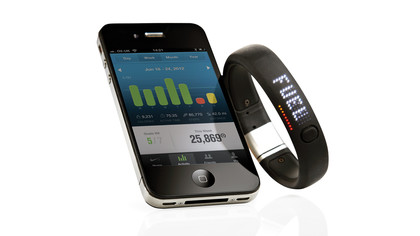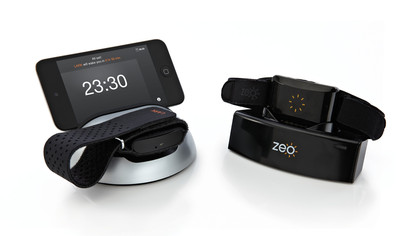How to keep fit with your iOS device
Healthy, happy and fit with your iPhone, iPod Touch or iPad
Sign up for breaking news, reviews, opinion, top tech deals, and more.
You are now subscribed
Your newsletter sign-up was successful
Thinking about getting the bus home? Ah, but that will probably mean you won't hit your goal for the day - and though that doesn't really mean anything, it really can influence your behaviour.
It's the same idea with the Fitbit Ultra; it can also tell you how many floors you climb, and your willpower when deciding whether to take the lift or the stairs can get a welcome boost when the angel sitting on one of your shoulders reminds you that you're a bit behind today and should really make the extra little bit of effort.
This all isn't just anecdotal, either. Academic studies have shown the positive effect of simply recording progress; one 1986 study even showed that the results of students with disabilities improved even more greatly when graphed compared to when simply recorded, and that's another place where your iOS device can be a huge help.
Sports specifics

First, let's talk about accessories, and specifically those that can help track how active you are every day.
Our favourite is the Nike FuelBand. It's the most expensive, but gets our vote both because it's the most useful and informative device on its own, and also because, when you connect it live to your iOS device over Bluetooth (another tick!), you get rich, informative graphs and achievements.
What's more, the Facebook integration acts as a great incentive to walking or running more; when you can see that your friends' scores are higher than yours, a small (and slightly unpleasant, if we're honest) voice in your head will get you off the sofa, just for your own pride! The FuelBand is, though, expensive at £129, and there are other options that are almost as good.
We like the Fitbit Ultra, a little thing you clip to your waistband that measures how many steps you take and how many floors you climb. Like the FuelBand, it also estimates how many calories you've burned, though in both cases we're sceptical about how accurate this extrapolated figure can really be.
Sign up for breaking news, reviews, opinion, top tech deals, and more.
Unfortunately it doesn't link to your iOS device directly - you have to sync it via a PC or Mac - but the iPhone app is good, and will also track other metrics such as how much water you drink. It will also track your sleep patterns, unlike the FuelBand, and, especially if you pay for the premium online service, will give you personalised guidance on realistic goals and interpreting your results.

Even better at giving you advice with a detailed, personalised report is another device that can help track your sleep, the Lark. We tested this alongside the Zeo, and though the data from the Zeo is more accurate - it measures electrical activity in the brain rather than merely movement data in a device strapped to your wrist as with the Lark - the fact that it's relatively bulky and straps to your forehead means that it really gets in the way when you're trying to sleep.
Sure, you could 'fool' the Lark by lying perfectly still while remaining wide awake, but you'd only be fooling yourself. The information, trends and, ultimately, advice the Lark gives you really is useful and written in a very human way, and we think it can really make a big difference to those people struggling with light insomnia.
There's one last activity tracking gadget we'd like to mention here, but with a big caveat. The Jawbone UP, like the Nike FuelBand, is a bracelet-like thing you wear on your wrist. It lacks the FuelBand's display and Bluetooth connection, and the app isn't as rich, but it's less bulky, and cleverly connects to your device by plugging into its headphone port.